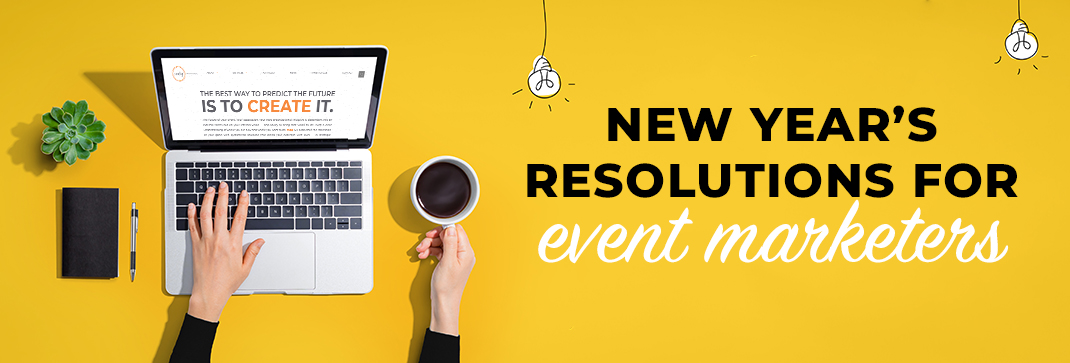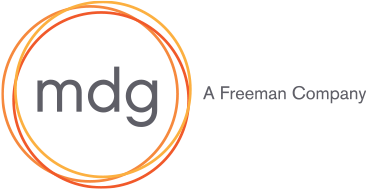
The past year had its share of ups and downs – the vaccine rollout, the delta and omicron variants, the varying degrees of success with digital events, the return of live events. Through it all, event marketers persevered – and learned some important lessons along the way. At mdg, we’ve used what we’ve learned to set our intentions for 2022.
“I will see change as opportunity.”
Sheree Whiteley, copywriter
I’m going to stop seeing change as an intimidating thing. Instead, I will view it as a catalyst for creativity and professional growth. The move to virtual and hybrid event structures prompted me to articulate the benefits of participation differently, to dig deep for ways to say things like “online” and “webinar” without using those words and to get comfortable with messaging the tough stuff (like postponements for live events that serve industries hardest hit by the pandemic). It may not have been easy, but it helped me expand my skills and made me a stronger marketer.
“I will encourage better listening.”
Jacquelyn Wells, senior vice president and marketing strategist
Throughout the pandemic, we filled the void of our cancelled events by launching virtual events and webinars, retooling our business models with 365 platforms and diving headfirst into content marketing. But did we really listen to our audiences? What problems are we solving for them? How and when do they want to consume information? As we move forward, it’s important to reconnect with our audiences — revise personas and buyer journey maps, conduct needs analyses and take the time to better align offerings with needs.
“I will make net new lead acquisition job No. 1.”
Anjia Nicolaidis, director of international marketing
After two years of travel restrictions, event cancellations and disruption, international prospect databases are old and cold. Email marketing may win back some loyal attendees, but it won’t make up for the losses we’ll likely see in markets where the rebound is slower. We should repurpose the content we created during the pandemic to attract new leads in the countries most likely to return to in-person U.S.-based events.
“I will reset my definition of an ‘influencer’ and ensure the most prominent speakers, attendee loyalists and/or staff members are acting as social proof to reach wider audiences.”
Connor Stewart, director of social media
An event’s loyal attendees — and the authentic enthusiasm they provide — cultivate trust in prospects. They are among the most qualified to illustrate an event’s value to their peers, even if they don’t have a robust social media following. It’s imperative we give thought leaders who are participating in events the opportunity to promote their involvement.
“I will market with empathy.”
Shauna Peters, vice president and marketing strategist
Between the Great Resignation, the Great Retirement and all the changes brought about by the pandemic, our audiences have changed. So, too, must the way we market to them. To truly be audience-centric in today’s world, we must know who our audiences are and how to empathize with their emotions, their fears, their ambitions and the demands on their time.
“I will use design to facilitate social sharing.”
Kacia Reilly, director of creative services
A great way to extend reach beyond a database is through viral sharing on social media. I know that the likelihood of someone sharing content about an event will increase substantially when there’s a great visual to support it — a fun meme, dramatic image, high-energy video or even an infographic that brings a concept to life.
“I will see the whole picture.”
Michael Engard, web developer
There are many moving pieces that comprise a digital marketing campaign: websites, email, SMS, search, social media, targeted advertisements. It takes constant discipline to see this multimedia maelstrom from the individual’s point of view: not just a series of engagements with a faceless audience, but as a singular experience that tailors itself to each person who experiences it. Virtual events are a new challenge, but they’re also an opportunity to create a more frictionless experience to move a prospect seamlessly from first touch to satisfied attendee.
A version of this article originally appeared in PCMA Convene.


